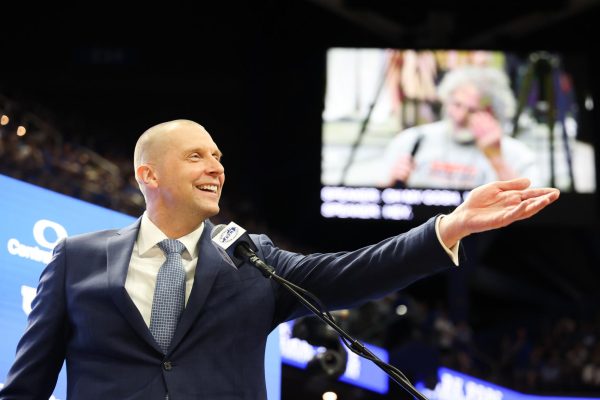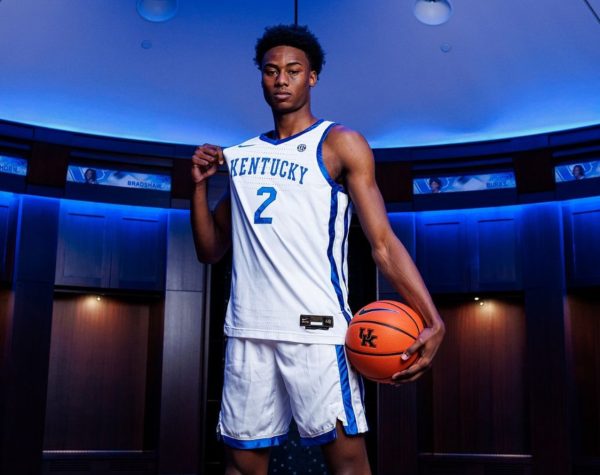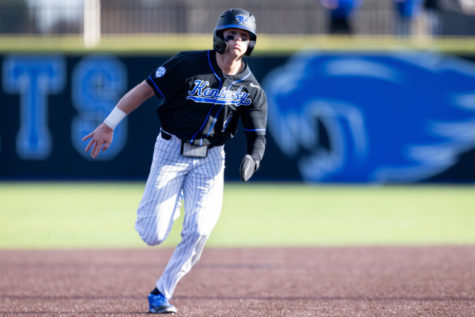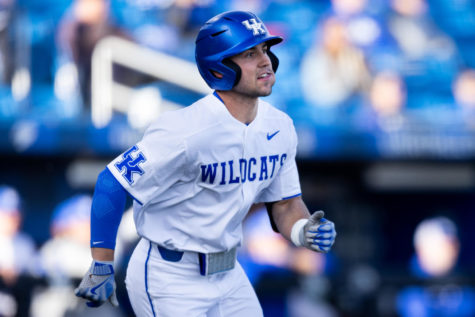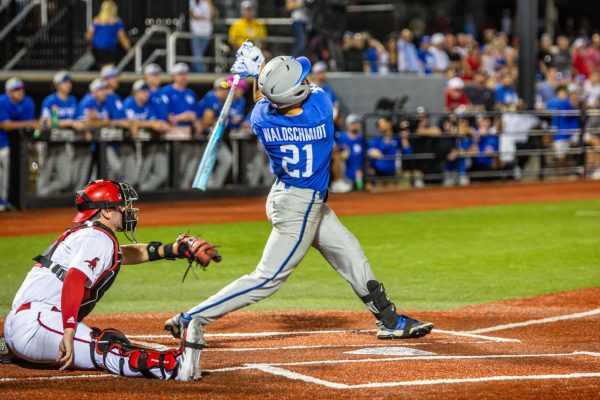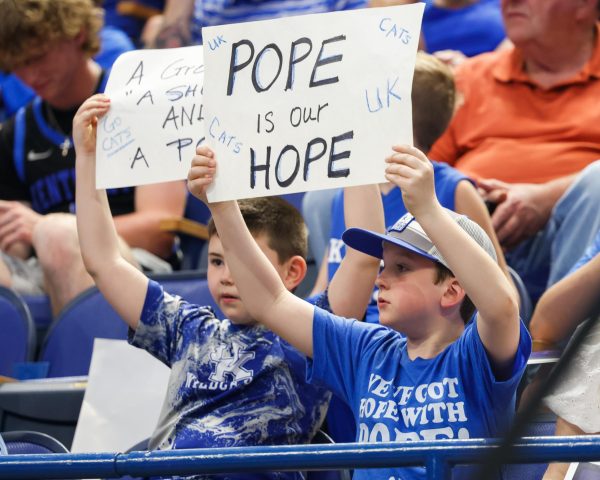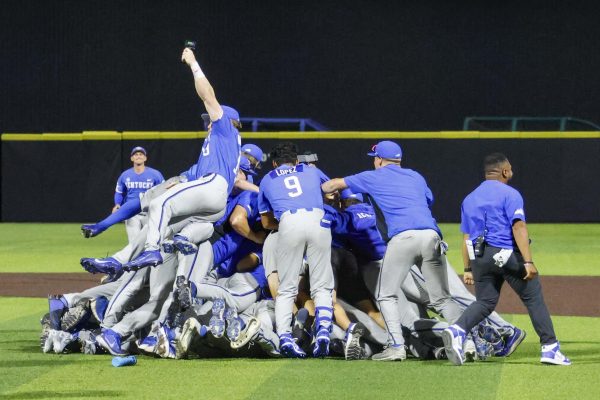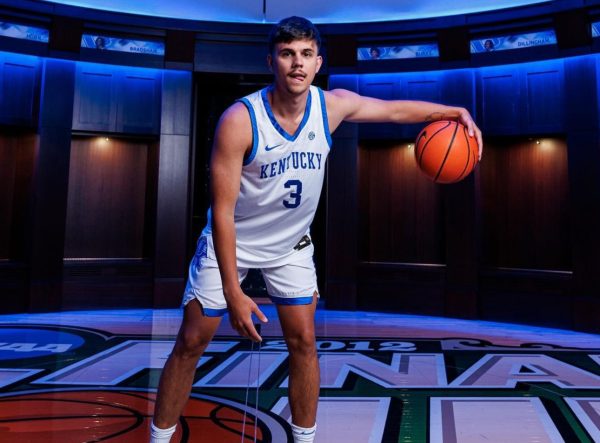Paxton case could be decided at Friday hearing

January 15, 2010
After a whirlwind month full of legal filings, but no actual court dates, senior pitcher James Paxton could finally get some answers in his case against UK on Friday.
Paxton sued the university for a temporary injunction that would allow him to play baseball this season without submitting to an NCAA interview regarding his eligibility.
Paxton’s eligibility is in question due to an article in a Toronto newspaper citing an executive with the Toronto Blue Jays — the Major League Baseball team that drafted Paxton with the 37th pick in last year’s amateur draft — claiming he never spoke directly to Paxton, but instead spoke exclusively with Paxton’s adviser Scott Boras, according to court documents.
That led to Paxton meeting with UK Compliance Director Sandy Bell, who court documents say informed Paxton of a request to be interviewed by the NCAA. In that meeting, Bell also told Paxton to keep the interview quiet and that cooperating would limit any suspension Paxton may face, according to court documents.
According to later court documents, Bell apologized to Paxton, saying she was just a “messenger for the NCAA†and “had to say†that Paxton shouldn’t tell anyone.
What followed was a litany of court motions. Paxton filed a temporary injunction asking to be allowed to play while his case against UK continues. Then came motions to allow testimony from expert witnesses, Paxton’s attorneys and Bell.
Finally, UK filed a motion to dismiss the case with Paxton, claiming there was no controversy between the university and its pitcher and that Paxton’s claims that UK was violating its Student Code of Conduct and the Kentucky Constitution were not applicable.
Paxton isn’t the only player returning to school that has faced issues with the NCAA. Multiple media outlets have reported returning baseball players who turned down pro contracts have been asked to be interviewed by the NCAA and fill out a questionnaire about their experience. That led MLB Players Association Executive Director Michael Weiner to warn the NCAA about handing out the questionnaires.
Richard Johnson, an attorney for James Paxton, previously won a similar case against the NCAA with Oklahoma State pitcher Andrew Oliver, but his favorable ruling by an Ohio judge was thrown out when Oliver settled with the NCAA out of court.
Those issues will be addressed by a 9:30 a.m. hearing on Friday to decide UK’s motion to dismiss and motions for the various testimonies. If UK is denied its motion to dismiss, a 3 p.m. hearing will be held to decide on Paxton’s request for a temporary injunction.
Keys to the Paxton case
James Paxton’s attorneys argue that UK is violating its Student Code of Conduct and the Kentucky Constitution by suspending Paxton for not participating in an interview with an NCAA representative.
– Section 25(a) of the Student Code of Conduct states: The Dean of Students office shall give the accused student written notice of the date, time and place of the hearing as well as the specific charge against the student. An accused student shall be given reasonable access to the case file, which will be retained in the Dean of Students Office. Paxton’s attorneys claim that Paxton was never informed of the charges against him. UK attorneys dispute this by saying Paxton was given a copy of the newspaper article.
– UK claims its contract with the NCAA supersedes the Student Code of Conduct. Paxton’s attorneys disagree.
– UK claims the Student Code of Conduct does not apply because the university is merely a messenger and Paxton’s real issue is with the NCAA. The NCAA is not listed as a defendant in the Paxton case. Under this thought process, the Kentucky Constitution also doesn’t apply. Paxton’s attorneys dispute this, saying it is the university that will suspend Paxton, not the NCAA, therefore the problem lies with the university.
– Potential NCAA Bylaws that Paxton would break, making him ineligible, by refusing an interview with the NCAA:
32.3.7.2. Responsibility to cooperate: At the beginning of an interview arranged or initiated by the enforcement staff, a current or former student-athlete or institutional employee shall be advised that refusing to furnish information or providing false or misleading information to the NCAA, conference or institution may result in an allegation that the individual has violated NCAA ethical-conduct legislation.
10.1 Unethical conduct: Unethical conduct by a prospective or enrolled student-athlete or a current or former institutional staff member (e.g. coach, professor, tutor, teaching assistant, student manager, student trainer) may include, but is not limited to, the following:
a. Refusal to furnish information relevant to an investigation of a possible violation of an NCAA regulation when requested to do so by the NCAA or the individual’s institution.
j. Failure to provide complete and accurate information to the NCAA, Initial-Eligibility Clearinghouse or the institution’s athletics department regarding an individual’s amateur status.









































































































































